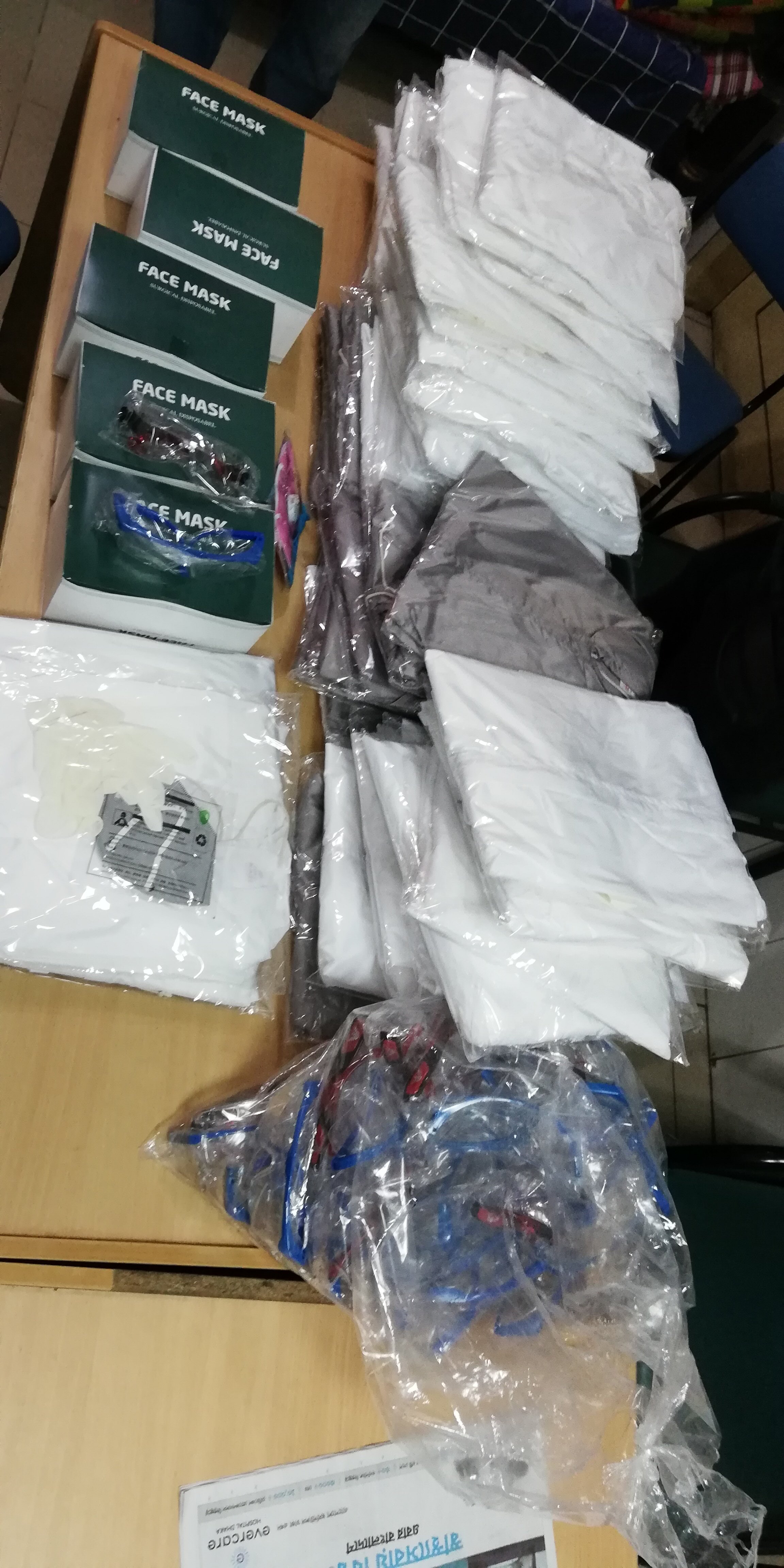Alumni Impact: Rafsanul Hoque Supports Doctors with Protective Kits During the Covid-19 Crisis
Guest post by Rafsanul Hoque, who participated in the FIUTS Study of the U.S. Institutes (SUSI) on Journalism and New Media program from Bangladesh. He writes about his experience supporting doctors in the city he resides in, Dhaka. He is also working with a fundraiser to support the poorest regions of the country with basic needs.
“Doctors are on the frontline of this crisis” – is the line we are frequently hearing during this Covid-19 pandemic. My cousin, who is a doctor himself, disagrees however. He believes they are the last line of defense. “The line starts with you being safe, the line ends with us taking care of you”, he explains. If the people in the healthcare system become sick, the whole system falls on itself.
Rafsan with doctors and head of the department of Cardiology at Sir Salimullah Medical College Dhaka
It is hard to find a person that has not been impacted by the deadly Coronavirus, either directly or indirectly. Thus, to address the ongoing Covid-19 pandemic, my friends and I, who jointly run an organization called the Human Library Bangladesh, discussed the possible postponement of our event that we have been planning since January. We realized that we can all come forward to help by maintaining proper protocols; we all have a capacity to contribute, however little, despite strict regulations on mobility. After talking to my cousin, I became more aware that despite the government having separate institutions to test and take care of Coronavirus patients, many people are still unaware of the symptoms and some people even try to hide their travel history and other necessary information when they visit regular hospitals, thus making proper detection harder. Moreover, some people continue to visit hospitals despite showing symptoms of Coronavirus, though people are continuously being asked to stay home even if they show symptoms. They can contact the healthcare providers to visit their houses and collect samples for test because, going out can certainly endanger others.
PPE included gowns, masks, goggles, gloves, and surgical masks
Besides, the marginalized population are still gathering at public hospitals, where healthcare is cheap. Many lie on the floor of the balcony as they are unable to find beds for themselves. This puts all healthcare workers, especially workers at the public hospitals at serious risk. It also cancels out proper treatment for people who have different diseases yet, show some Coronavirus symptoms because the doctors are unable to treat them without protective kit. The PPE or Personal Protective Equipment is a basic need for healthcare workers, something which
The whole world is struggling to find in sufficient quantities. Without it, doctors and nurses themselves can become the bearers of this virus and impact the vulnerable patients.
In light of such scenario, we decided that despite our limited movement capacity, we can still help by providing PPEs to help fill the lack of its availability. Finding PPE is very challenging not just for us in Bangladesh but in all other countries due to the high amount of demand in a short time. Fortunately, I knew someone who was collaborating with an import business from China and brining various medical resources, including elements of the PPE to combat the Coronavirus pandemic. We quickly set up a fundraiser and through our Facebook page of Human Library Bangladesh, along with personal contacts, we received an overwhelming response and donations. We were able to pay for enough PPEs to serve the Cardiology department of one public hospital. We contributed some additional money for buying food for a low-income village. I am currently working with another fundraiser which is supporting local groups that provide food ration to the poorest areas of the country.
There are multiple organizations and volunteer groups who are currently risking their lives to ensure that people survive through this crisis and economic turmoil. Many initiatives are being undertaken. For example, food are being distributed or free to the middle-income families who are too shy to ask for help publicly; roads, public places and transportations are being cleaned regularly with disinfectants. Though the initiatives need to be expanded at a wider scale since as a developing country, the fear of hunger is as bad as, or even worse than the Coronavirus pandemic, especially among the marginalized community.
Seeing so many local leaders coming forward gives me hope that tomorrow might be better. I remember the words of Margaret Mead, “Never doubt that a small group of thoughtful, committed citizens can change the world; indeed, it's the only thing that ever has.”
The current fundraiser that I am working with, provides food rations such as rice, potatoes, oil, soap etc. to the low-income communities of the economically poorest regions of Bangladesh. If you believe in our effort, your smallest contribution can prove massive to the poor families who are struggling to put food on their plates. Please consider donating via our GoFundMe page.
—
The Study of the U.S. Institutes promote a better understanding of the people, institutions, and culture of the United States among international students, teachers, and scholars. Study of the U.S. Institutes (SUSIs) are short-term academic programs for groups of undergraduate leaders, educators, and scholars from around the world. Hosted by academic institutions throughout the United States, these 5- to 6-week Institutes include an intensive academic residency and an integrated educational study tour. Extracurricular cultural and community activities help to broaden the participants’ understanding of U.S. society. See more here.
Guest posts on the FIUTS blog represent the experiences and views of individual writers. They do not necessarily reflect the views of FIUTS or any organizations or institutions affiliated with our programs.
Alumni Impact is published on the FIUTS blog, Facebook, Instagram, and Twitter. Read past posts by searching for Alumni Impact on our website main page!
Interested in being featured in Alumni Impact? Contact Annie Lewis at annie@fiuts.org.


